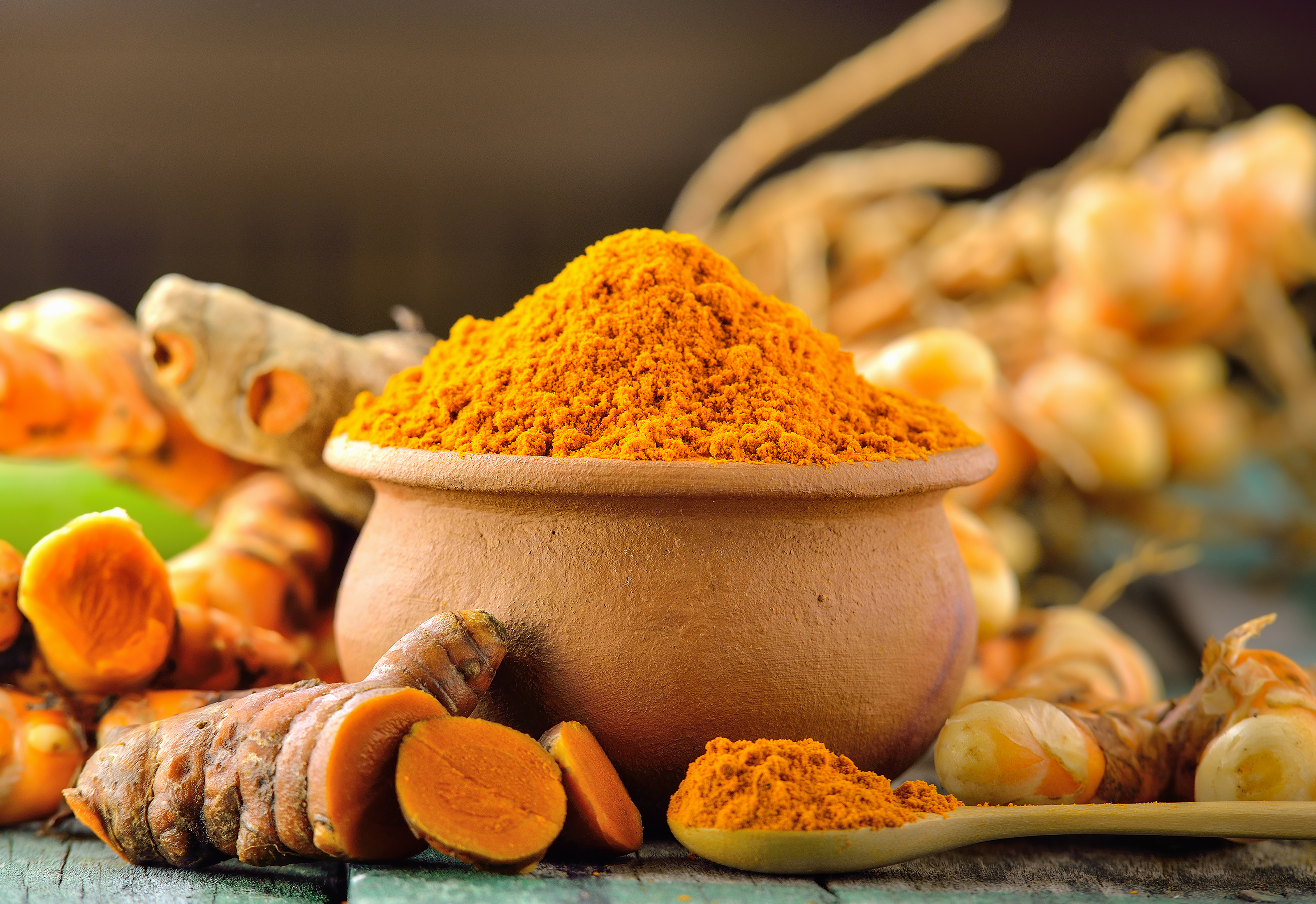Turmeric is the nature’s miracle for treating many of the ill-health. Majorly it is known for its anti-inflammatory properties. It is part of the ginger family known as Zingiberaceae which also includes cardamom and ginger. Turmeric is considered as Ayurvedic medicine and useful for healing blemishes, wounds, smallpox, pain, and also reduces fatigue. Nonhealth benefit of turmeric is used as a dye for coloring clothes.

If there is any problem of inflammation and stomach complaints, then the most accurate and healing answer to your pain is turmeric. Due to its anti-inflammatory properties, turmeric regulates the factors within your body which are associated with inflammation. Therefore, it is highly recommended that we should include turmeric in our daily routine diet. Turmeric with the biological name Curcuma longa L. is native to Asia and Southeast Asia.
The active compound of the turmeric is known as curcumin, a yellow pigment which has healing properties and included in Ayurvedic medicine and also in traditional Chinese medicine for centuries. Organika Curcumin capsule developed by Yes Wellness. has been used as it has 500 mg of active curcumin which can be used as an anti-inflammatory compound and help relieve any complaint of the stomach such as nausea, flatulence, and cramping.
Curcumin, i.e. turmeric is not only used as a spice but is found effective as antioxidant and anti-inflammatory properties too.
The major benefits of turmeric are:
- It also aids in providing relief in pain and inflammation in the joints.
- It helps the body to fight the foreign attackers and act in repairing the damage done to the body, such as pathogens like harmful bacteria can take over the body and affect your health badly.
- Turmeric and curcumin block the NF-kB. It is a molecule which travels directly into the cells nuclei and activates the genes that lead to inflammation. Thus, it is clear that curcumin can fight with inflammation directly at the level of molecules within the cells of your body.
- It also protects the body from damage done by free radicals.
- Free radicals are involved where there is oxidative damage during aging. These free radicals react with organic substances in your body like fatty acids, DNA or proteins. Hence, turmeric having antioxidant properties can neutralize these free radicals.
- Curcumin fights free radicals in two ways; first, it directly blocks them and then stimulates the production of your body’s own antioxidant to protect the cells.
- Curcumin is also useful in increasing the brain levels of the brain-developed neurotrophic factor abbreviated as BDNF, a growth hormone which functions in the brain. Imbalance in BDNF is associated with depression and Alzheimer’s disease.
- Curcumin is also known for improving the memory and hence makes you smarter.
- Curcumin has an effect in lowering the risk of developing heart disease as it improves the endothelium (lining of blood vessels) function. Dysfunction of endothelium might increase the risk of cardiovascular disease and also affects the ability of the endothelium that regulates the blood pressure along with blood clotting and other factors. Studies have proved that curcumin is effective in improving the endothelial function.
- Turmeric can also prevent cancer which is characterized by uncontrollable cell growth. The treatment by curcumin has an effect in cancer growth and development, besides the spread of cancer at the level of molecules.
- There have been studies on curcumin that reported that it could help in the clearing of cancerous cells and also reduce angiogenesis (newer blood vessels grow in the tumor) and metastasis (a spread of cancer). A study was conducted for a month in about 44 men having lesions in their colon that might turn cancerous, and they observed that 4 grams curcumin given per day helped in reduction of the lesions by almost 40%. Hence, the authors concluded that curcumin might be used along with the conventional and old cancer treatment. However, further studies are required.
- Alzheimer’s disease is characterized by the build-up of the protein tangles. These tangles are called amyloid plaques. Curcumin has found to help in clearing the amyloid plaques. Curcumin is able to cross the barrier of blood-brain and hence helps in improving the Alzheimer’s disease’s pathological process.
- Arthritis is a very common disease in Western countries. As it is well known that curcumin has anti-inflammatory properties, it has been found useful in treating arthritis.
- Curcumin has a promising effect in the treatment of depression and acts as an anti-depressant. Depression is aggravated when the levels of a brain-derived neurotrophic factor are decreased and also shrinking of the hippocampus, an area in the brain involved in learning and memory. As discussed above curcumin has a role in increasing the BDNF factor in the brain.
Turmeric and curcumin, its active compound has been proved to have many health benefits. These benefits are scientifically proven as they can prevent and treat many diseases. Its major role as an anti-inflammatory as well as an antioxidant helps in improving the symptoms of arthritis and depression.
